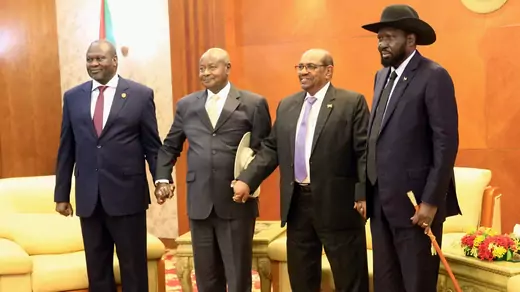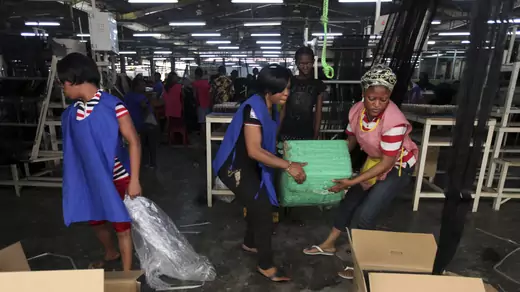- China
- RealEcon
- Topics
-
Regions
Featured
-
Explainers
Featured
Interactive by Olivia Angelino, Thomas J. Bollyky, Elle Ruggiero and Isabella Turilli February 1, 2023 Global Health Program
-
Research & Analysis
FeaturedCoordination is needed on growing transnational challenges, but domestic political priorities could hinder reaching consensus on managing global challenges.
Report by The Council of Councils June 30, 2024
-
Communities
Featured
Webinar with Carolyn Kissane and Irina A. Faskianos April 12, 2023
-
Events
Featured
Virtual Event with Emma M. Ashford, Michael R. Carpenter, Camille Grand, Thomas Wright, Liana Fix and Charles A. Kupchan June 25, 2024 Europe Program
- Related Sites
- More
June 23, 2015
Sub-Saharan AfricaThis is a guest post by Allen Grane, research associate for the Council on Foreign Relations Africa Studies program. On June 19, the U.S. Fish and Wildlife Service (FWS) crushed more than a ton of e…

July 24, 2018
South SudanOn June 27, South Sudanese President Salva Kiir and former Vice President Riek Machar met in person for the first time in two years and agreed to a ceasefire to end the civil war, now in its fifth year. Dubbed the Khartoum Declaration, this latest ceasefire may initially appear to be a victory, but violence resumed mere hours after it went into effect.

April 10, 2019
NigeriaWomen are responsible for 70 to 80 percent of all agricultural labor in Nigeria, and according to federal and state law, they have the right to hold and inherit land. But, only 10 percent of land owners in Nigeria are women. This discrepancy is also present elsewhere in Africa and around the world. African communities will be some of the hardest hit by climate change, but protecting women’s land rights can help mitigate the effects.

March 14, 2019
South SudanOn February 20, the UN Commission on Human Rights in South Sudan issued its third report. Despite the peace deal signed five months ago, it documented an increase in cases of rape and sexual violence over the past year, concluding that the crimes had “become quite normalized” in South Sudan. Driving much of this is oil.

March 8, 2019
NigeriaAccording to the CFR Women and Foreign Policy Program’s new digital report, Growing Economies Through Gender Parity, Nigeria's GDP could grow by 23 percent—or $229 billion—by 2025 if women participated in the economy to the same extent as men. As President Buhari and Vice President Osinbajo begin to think about how to improve the economy over their second term, eliminating legal barriers to women’s economic participation is a good place to start.

 Online Store
Online Store